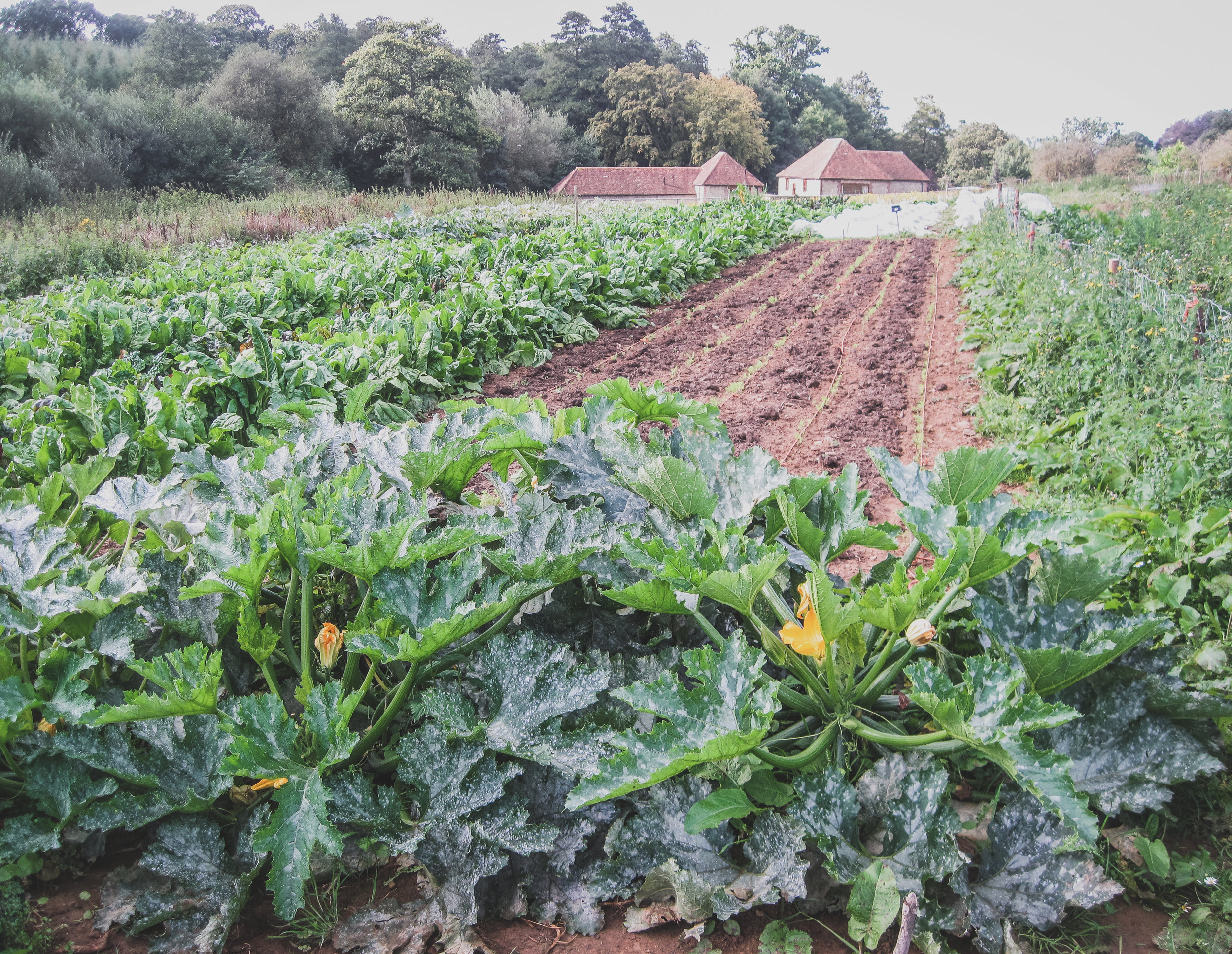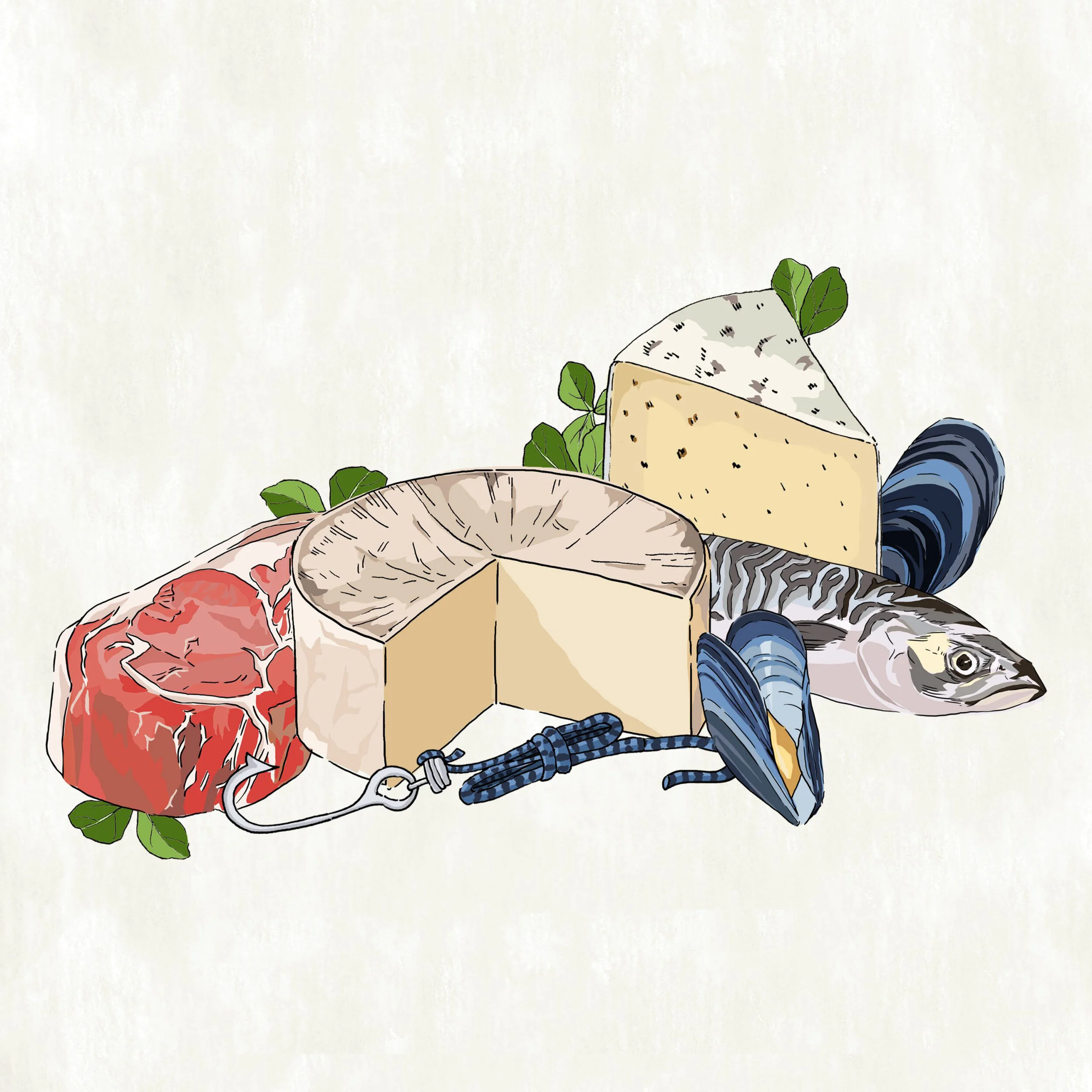by Rebecca Laughton and Csilla Kiss,
The Landworkers' Alliance and The Centre for Agroecology, Water and Resilience (CAWR), Coventry University.
Why study small farms?
Small scale (20ha and less) farms and market gardens have long fallen below the radar in UK agricultural policy, despite attracting increasing numbers of new entrants who bring youth and innovation to the agricultural sector. A culture of disbelief exists that such farms can be economically viable in an age when family farms of 50-200 hectares are being amalgamated into ever larger units. Despite an “inverse relationship” between farm size and productivity being proven in the Global South, little data exists about the productivity of small farms in the UK. The “A Matter of Scale” (AMOS) study set out to challenge the assumption that bigger automatically means “more productive” and “more viable”, by collecting and analysing data about the yields, financial performance and multifunctional benefits of agroecological farms of 20ha and less. The A-Team Foundation provided funding for a two year study to be undertaken by the Landworkers’ Alliance under the supervision of the Centre for Agroecology, Water and Resilience (CAWR) at Coventry University, combining an online survey of small farmers with the creation of five short films, based on interviews with the most productive farms in the survey.
What did the research show?
The survey and interviews revealed a number of striking findings about this little studied sector. The most notable include:
- The average yields (kg per square metre) of crops such as beans, salad leaves and kale, requiring high labour inputs were two to three times higher than yield data for standard non-organic systems.
- Small farms provide employment, both for self-employed growers/farmers and paid employees, to the tune of 3.2 full time equivalents (FTE) per hectare. This is significantly higher than the UK average for agriculture of 0.028 annual work units (AWU) per hectare[1] and even the average for horticulture of 0.23 AWU/ha[2]. Furthermore, employees were motivated to choose small scale agroecological farms due to the variety of work, its meaningful nature and the convivial working environment.
- 78% of the sample was receiving no farm subsidies, and of those who were, for most respondents, subsidies represented a minor proportion of their income. Although net farm incomes were low, produce sales were generating more than 60% of total income for 33% of the AMOS sample, 40-60% of income for 33% of the sample. This contrasts with annual farm business income data for the UK, in which all farm types are obtaining more income from Pillar 1 payments and agri-environment schemes than from sales of agricultural produce[3] .
The methodology for measuring productivity on diverse, highly integrated farms, proved challenging. Apart from the horticultural data, it was difficult to calculate yield figures per area of land due to practices such as rotation, poly-cropping and the use of bought in feeds. A detailed understanding of the full productive capacity of small farms, especially those with livestock, would require in depth quantitative case studies. As is so often the case, the attempt to answer one question, only throws up many more!
Outcomes from the AMOS study
Even before the AMOS report was published in July 2017, figures from the study were in demand. The 2017 edition of the “Organic Farm Management Handbook”, used AMOS horticultural yield data in a new section focussing on the performance of small organic production holdings, making it more useful for business planning for such enterprises. Figures from the report have also been used in the Landworkers’ Alliance’s own campaign publications “Making Food Sovereignty a Reality: Recommendations for Post-Brexit Agricultural Policy”[4] and “Why We Need Small Farms”[5] .
Following publication, the report achieved some media coverage, including interviews with the author on Farming Today, BBC Points West (Link) and BBC Radio Somerset. At the Via Campesina global gathering in July, great excitement was expressed about the AMOS report as a valuable campaigning tool. In September, a delegation of Defra officers from the Organic Team took part in a two day study tour of small, agroecological farms in the Midlands, including three visits to holdings which took part in the study. Being able to show efficient and viable small farms in action, backed up by a detailed report about their productivity, was powerful in challenging the preconceptions held by some of the delegates. Already the report is contributing to broader dialogue about the future of agriculture and was also featured in a CPRE Food and Farming Foresight Paper, “Uncertain Harvest: does the loss of farms matter[6]?”
The scope of the project stretched far beyond the delivery of a report, however. Encouraged by the team at the CAWR, respondents for the survey were recruited in part by a series of six regional Landworkers’ Alliance meetings across England. These meetings, held in early 2015, formed the foundation for an evolving regionalisation process which is enabling far flung members of the LWA to benefit from training events, farm tours and the solidarity of regional meetings. In October 2016, people who took part in the survey and other LWA members were invited to a Skill Share day to hear about the results of the research, and take part in enterprise themed workshops to explore how they could increase productivity using agroecological ideas. The five films were premiered at the Skill Share day, which gave an opportunity for feedback and discussion and contributed to the final report. The films will now make the findings of the report accessible to a wider audience and will, we hope, encourage more people to read the report.
At a time when the future of UK agriculture hangs in the balance, the AMOS report will continue to be a valuable piece of the LWA’s campaign toolkit as we argue the case for better support for small farmers post Brexit.
You can read the full AMOS report here
[1] Defra (2015) Agriculture in the UK, p8
[2] Devlin, S. (2016) Agricultural Labour in the UK. New Economics Foundation and Food Research Collaboration.
[3] Defra (2015/16) Farm business income by type of farm, p8
[4] LWA (2017) Making Food Sovereignty a Reality: Recommendations for Post-Brexit Agricultural Policy.
[5] LWA (2017) Why we need small farms: Farming in Post-Brexit Britain.
[6] Willis, G. (2017). Uncertain Harvest: Does the loss of small farms matter? Food and Farming Foresight Paper 2, the Campaign to Protect Rural England.
















